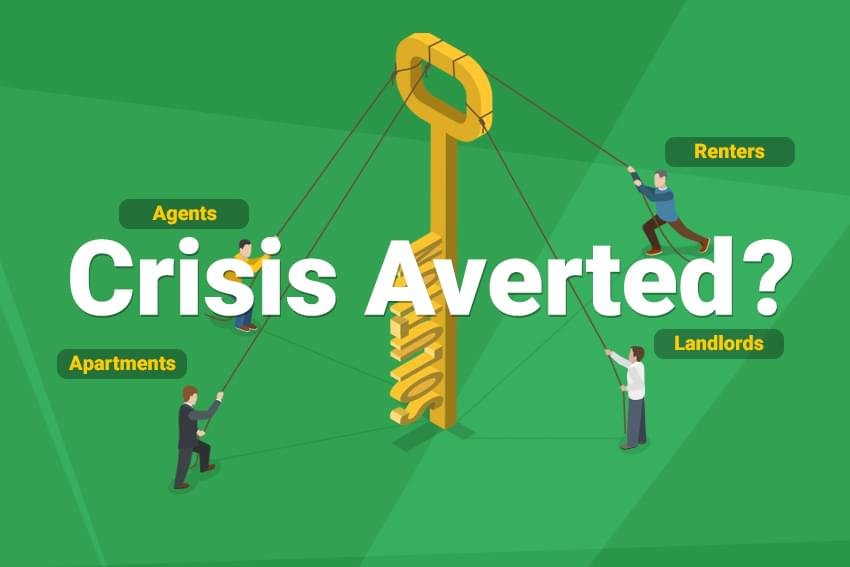Initially announced over 2-months ago, the “New Rental Law” is now in full effect.
The discrete announcement by the Contract Committee of the Consumer Protection Board, was followed by a raging storm of confusion, disbelief and general uncertainty by the general public. This hot button topic, that inevitably pits the landlord community against renters, has been a popular talking point last month.

New Thai Rental Laws: Blue Skies Ahead? Or… Calm Before the Storm?
Speculative and wild uncertainties were rife, with the most notable topics being:
Will the new laws deter buy-to-let property investment and affect the general market?
Will rental rates rise as a result of the new law?
Will the rental market slow down or even collapse as a result of these changes?
Will the Property Agency business model be adjusted or modified as a result of the new law?
A month after the dreaded or much “anticipated” (Depending, on the side you’re on!) deadline, the dust has finally settled.
So what is the fallout from this supposed “Legal Armageddon”?
Honestly not much, as the rental market in the Capital seems to have adjusted with a “same same, but different” attitude!
Most Property Agencies are operating with slightly modified leases and legally compliant business practices. However no fundamental changes to the sales or rental property market can be reported at this stage.
The main stakeholders affected, are definitely Apartments that have had to review business practices. Especially with regards to deposits, tenant notice periods and utility charges.
The “transparent” professional landlords have complied with the new laws, offering greater protection and fairer standards to renters via amended leases and reduced security deposits.
As for Landlords with less than 5 rental properties, it is still business as usual.

Several Frequently Asked Questions from Landlords and Tenants:
General
1. What are the implications of the New Rental Law?
2. Have rental rates risen in Bangkok?
3. Does the New Law apply to the leasing of commercial spaces (I.e. Offices and Retail Shops)?
Landlords (More than 5 Rental Properties)
4. If a Renter has caused damages over and above the 1-Month Security Deposit, how do I claim damages?
Renters/ Tenants
5. Does the new law apply to Leases signed before the 1st of May’18?
6. How can you ensure a Landlord doesn’t have more than 5 rental properties?
7. What if a Landlord refuses to refund my Security Deposit?
General
1. What are the implication of the New Rental Law?
The New Rental Law, provides greater protection to renters and has enforced a set of standards regarding leases and rental security deposits.
The main points:
– Only 1-month security deposit and 1-month advance rent is required to sign a new lease.
– Tenants can give 1-month notice (Irrespective of the rental term agreed) without forfeiting their deposit.
– Landlords need to be “fair” in their assessment of potential deductions for damages, at the end of a lease.
– Landlords cannot charge a premium on Utility Rates.
It is important to note that the new law applies only to Landlords with more than 5 rental properties.
More info about the New Law visit: “New Thai Rental Law: What to Expect?”
2. Have rental rates risen in Bangkok?
At the moment Bangkok is a tenant’s market, therefore it would be impractical for landlords to attempt to increase rental rates (To cover a shortfall in deposit).
Generally Fresh Property’s rental team, has not experienced any increase in rental rates as a result of the changes in Rental Laws.
3. Does the New Law apply to the leasing of commercial spaces (I.e. Offices and Retail Shops)?
The New Rental Law was changed to provide greater protection to private consumers (I.e. Renters) and therefore does not apply to Commercial Leases.
Landlords (More than 5 Rental Properties)
4. If a Renter has caused damages over and above the 1-Month Security Deposit, how do I claim damages?
The New Rental Law, does not absolve tenants from their duty of care for the property they are renting. Therefore in case of extensive damages, tenants would still be liable for compensating the landlord. A landlord could take a tenant to court, if that tenant refuses to pay for the excess damages caused during the rental term.
However, “prevention is better than cure” and landlords are advised to careful vet potential tenants (I.e. Check Visa, Work Permit and ensure updated ID Copy is collected and checked). Also it is always important to ensure an extensive and comprehensive Inventory is conducted before the renter moves-in.
Renters/ Tenants
5. Does the new law apply to Leases signed before the 1st of May’18?
The New Rental Law is not retroactive, and does not apply to leases signed before the 1st of May 2018.
6. How can you ensure a Landlord doesn’t have more than 5 rental Properties?
Practically speaking, renters would need to rely on the goodwill of the landlord or agents to disclose this information.
Technically, in case of dispute legal proceedings could require landlords to disclose property ownership status.
7. What if a Landlord refuses to refund my Security Deposit?
Practically speaking, “prevention is always better than cure” and tenants are always advised to have an extensive Inventory prepared before signing a lease. Also, it is important for the renter to respect their duty of care, ensuring the property they are renting is kept in good condition to ensure a smooth check-out/handover process.
However if things escalate, tenants can contact the consumer protection board for legal advice and support.
The last course of action if dialogue and compromise fails, is to undertake legal proceedings against a landlord. (This can be a costly and time consuming affair, with no clear result and should be considered as the last resort)
*This FAQ will be updated periodically (Last update: 07th June 2018)
Quick Legal Disclaimer: This article is simply a brief evaluation New Rental Law’s impact on the Property Market. This should not be treated as an opinion piece by the Editors of Fresh. If you think the New Law is adversely affecting you, it is best to consult and seek the help of a professional law firm.




